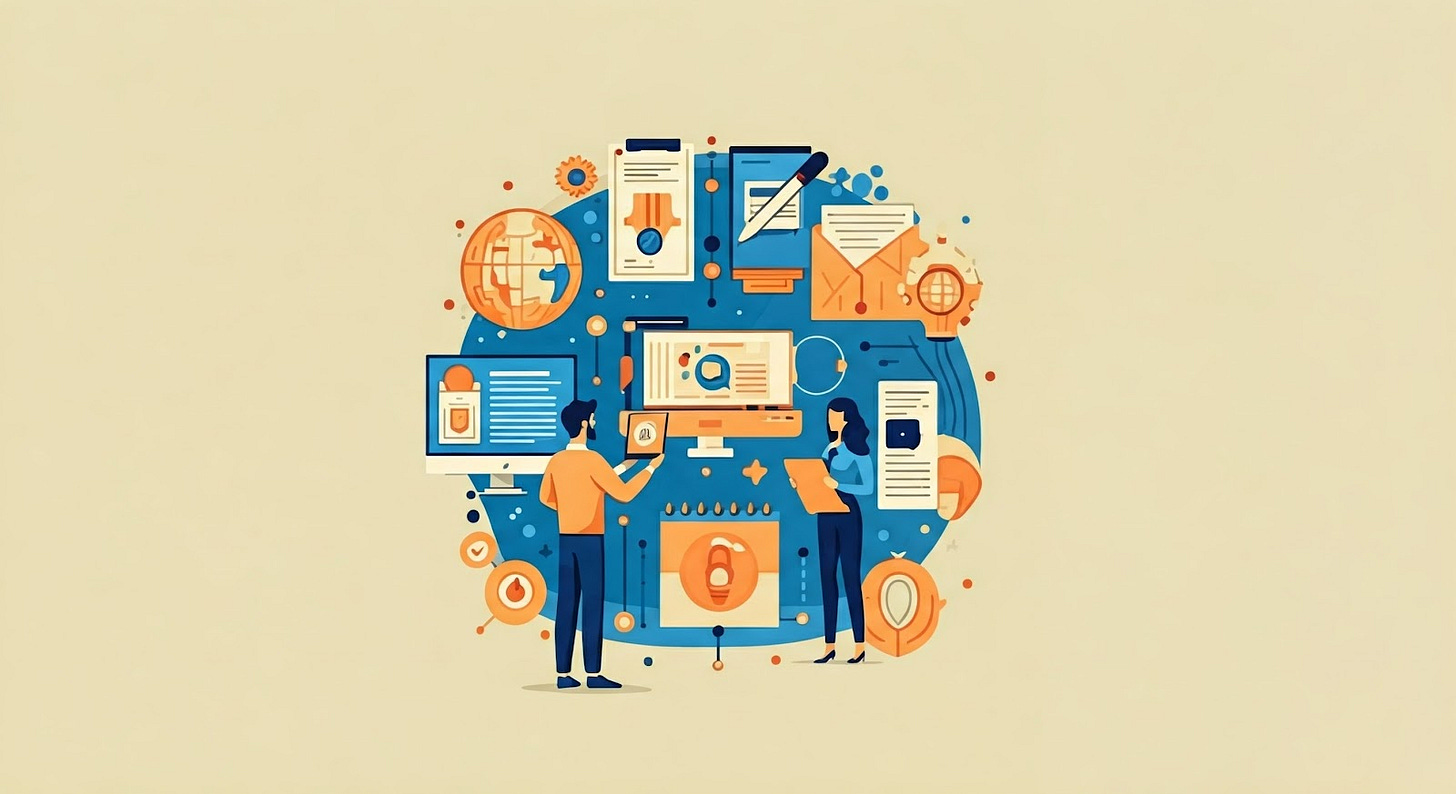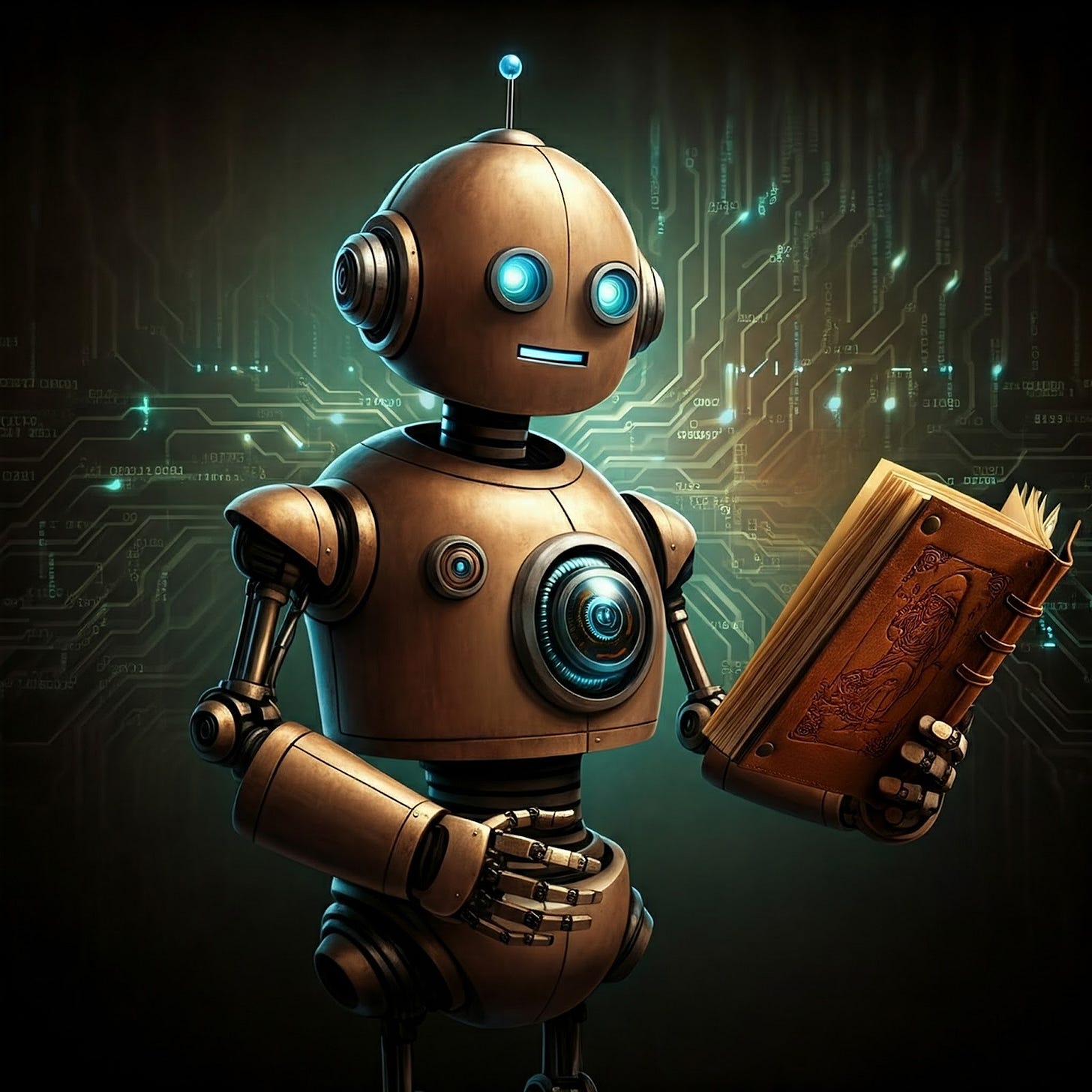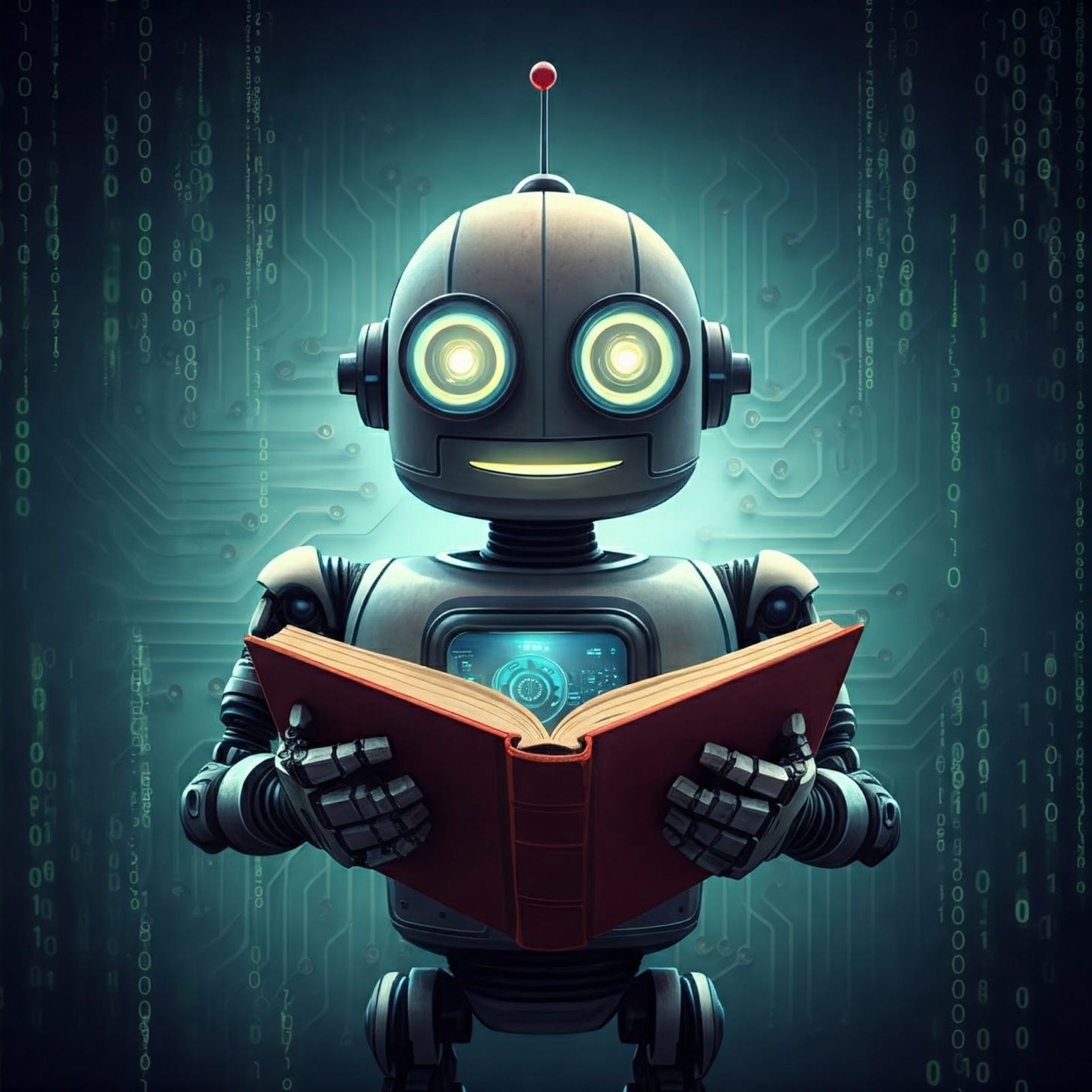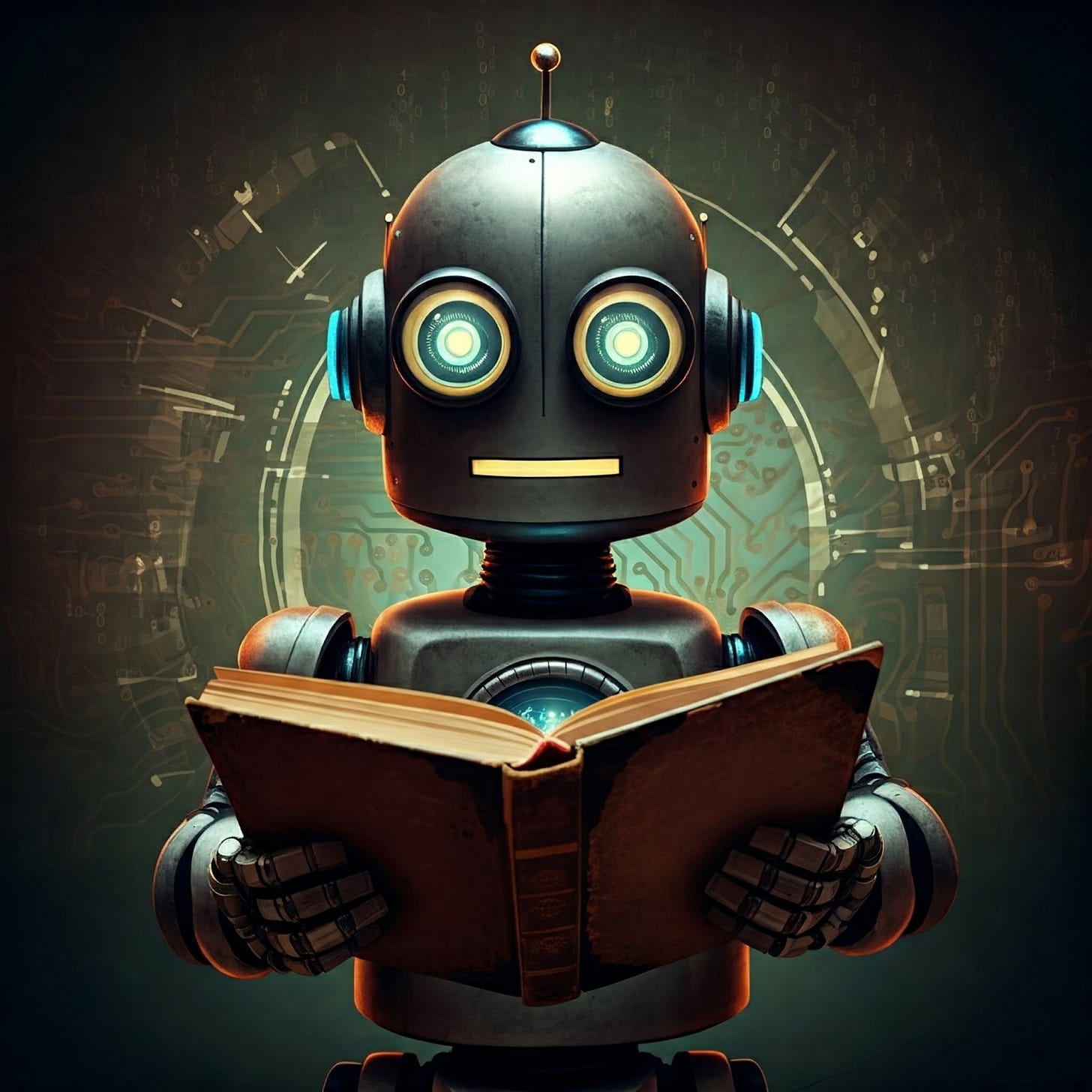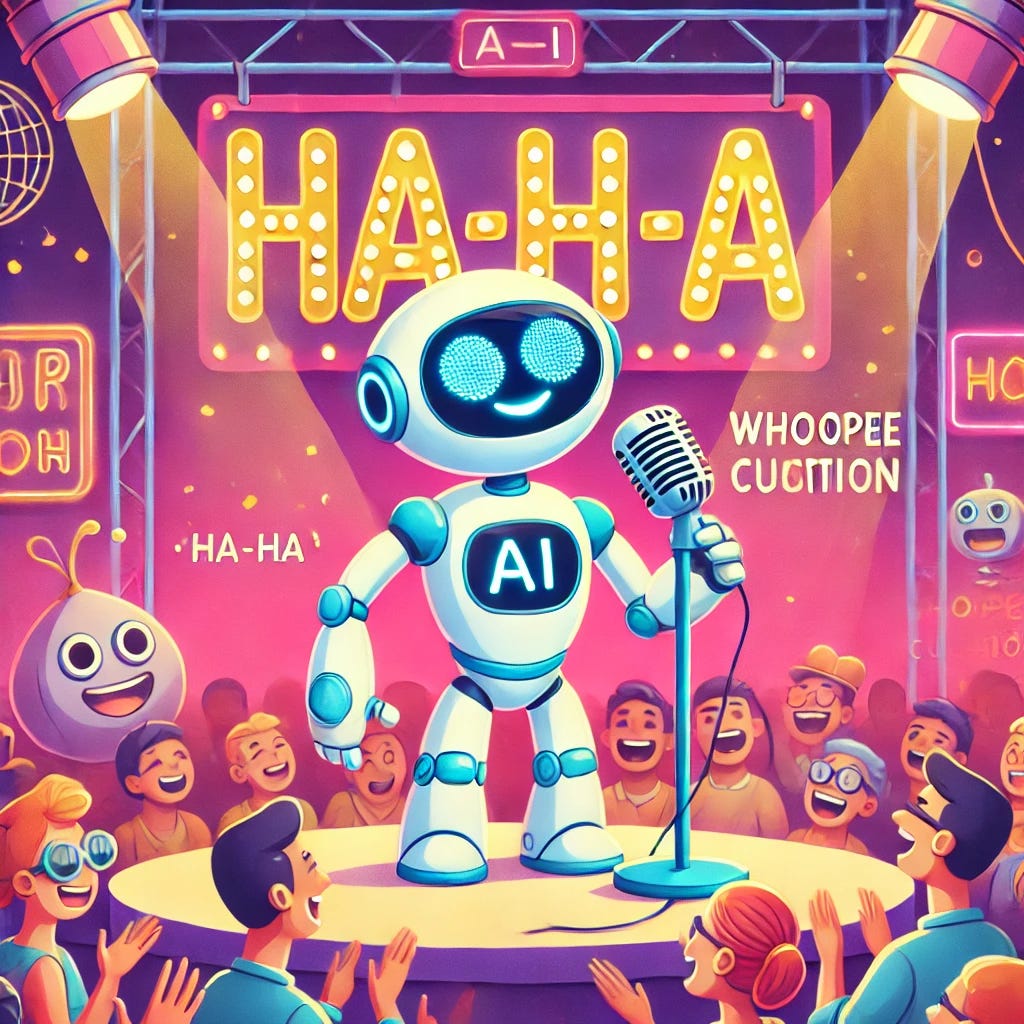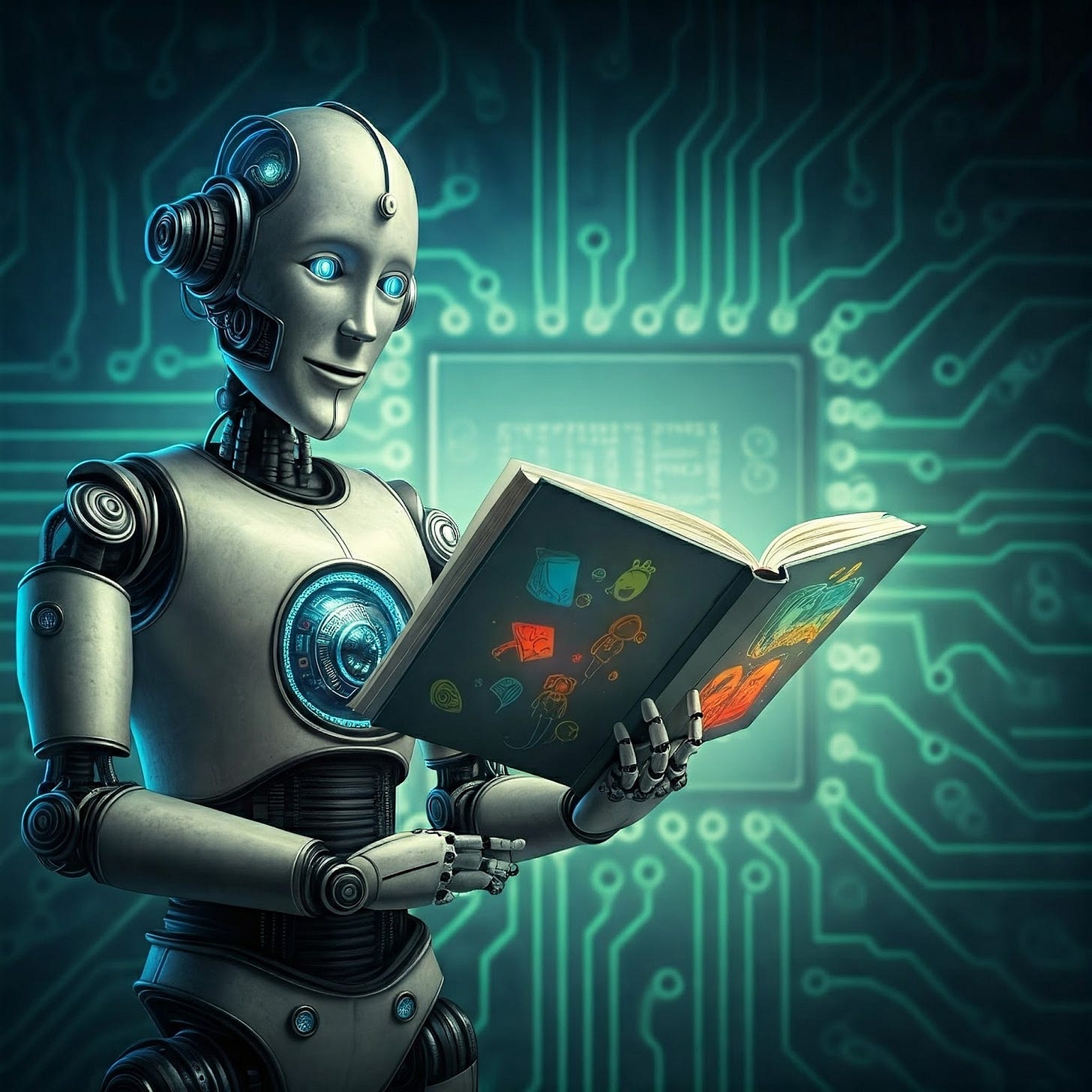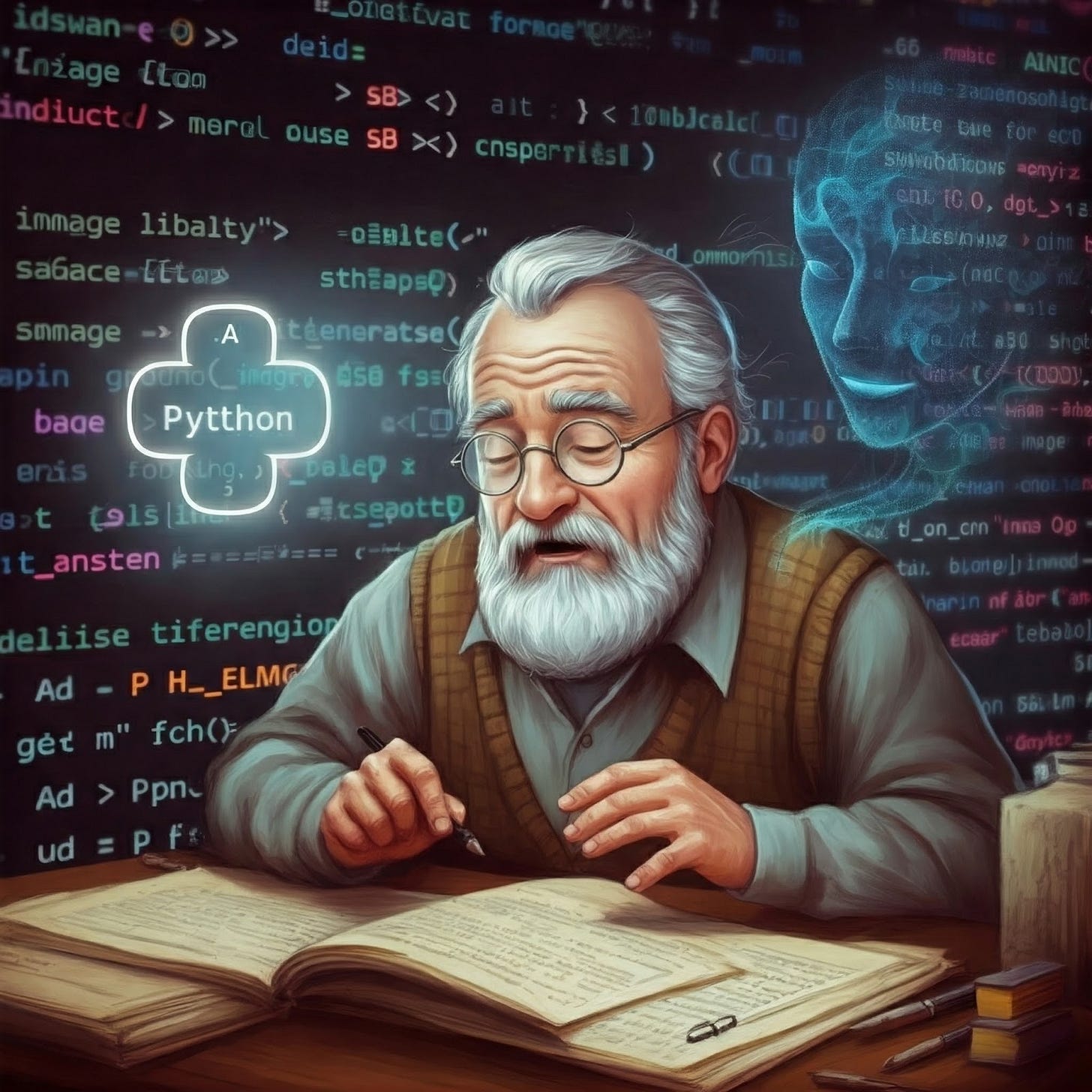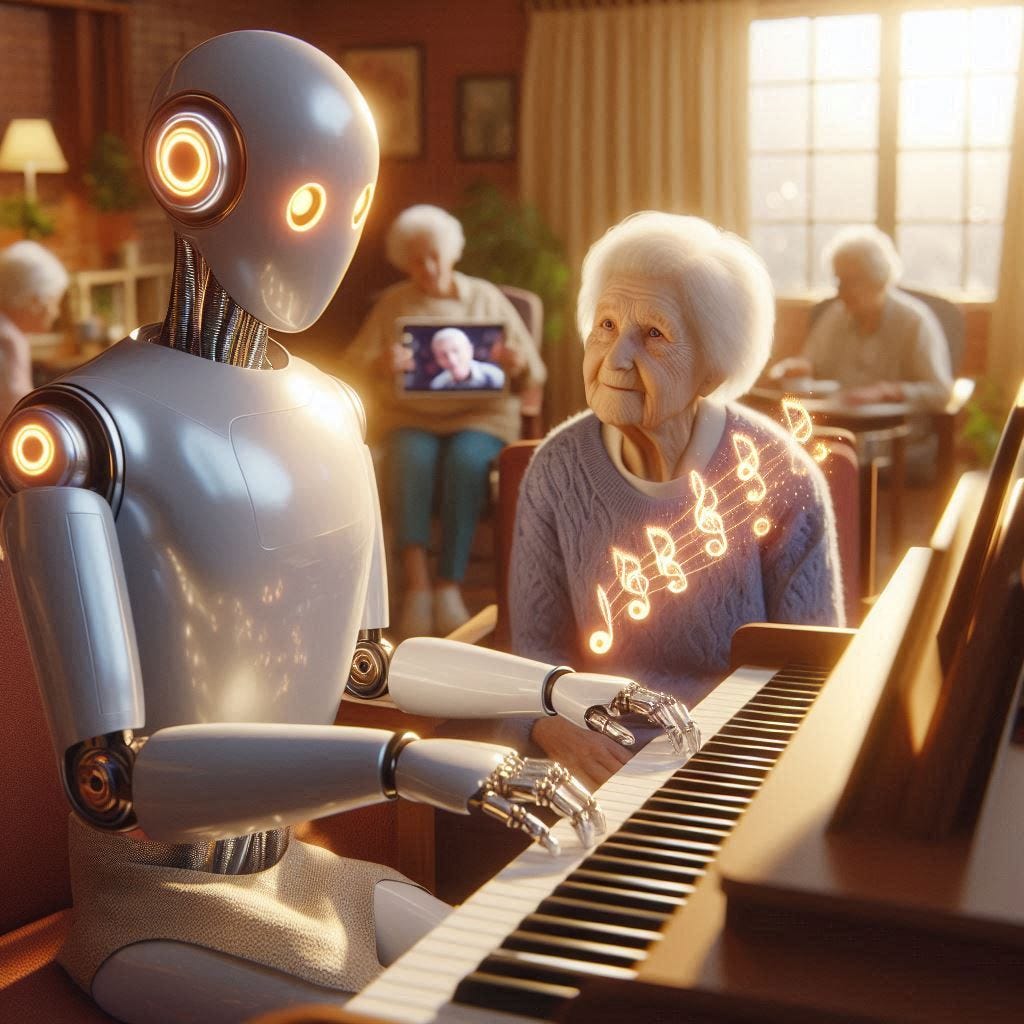Issue #97:The Future of Work Is Here: Are You Ready to Adapt?
How to leverage the AI revolution for your personal and professional growth.
Hey everyone, and welcome to this edition of "Chuck Learning ChatGPT"! I'm your friendly guide, Chuck, and I'm just as excited as you are to explore the world of ChatGPT and AI. This week, we're diving deep into how ChatGPT is changing everything and taking a look at the societal impact of AI.
The Societal Impact of AI: Employment and the Future of Work
AI is advancing faster than most of us can keep up, leaving workers uncertain about their job security. Tasks once requiring human hands are now being automated—factories, data entry, customer service, and more. This rapid shift has sparked fears of mass unemployment and a widening skills gap, especially for workers in roles susceptible to automation.
Imagine waking up one day to find your role replaced by a machine, with no backup plan or resources to re-skill. The stakes are high: without the right preparation, individuals risk financial instability, and communities face growing inequality. The divide between those who adapt to the AI revolution and those left behind is growing. It’s not just about job loss; it’s about the loss of opportunity, dignity, and stability for millions of workers.
The future of work in an AI-driven world doesn’t have to be bleak. By embracing lifelong learning and re-skilling, individuals can pivot to roles that harness human creativity, critical thinking, and emotional intelligence—skills that machines can’t replicate. Employers and policymakers must work together to provide accessible training, equitable support systems, and pathways to ensure a future where AI enhances lives instead of replacing livelihoods.
AI isn’t just eliminating jobs—it’s creating them too. Opportunities in AI development, ethics, and data science are booming. If we build a culture of adaptation, we can turn this challenge into an opportunity. Together, we can shape an AI-powered future that benefits everyone.
So, what will you do today to prepare for tomorrow's opportunities? Start learning, stay curious, and embrace change—because the future of work is what we make of it.
Let's get started!
Updates and Recent Developments
The AI World is Buzzing!
Things are moving at warp speed in the world of AI! Here's a quick rundown of what's been happening:
New Models, New Powers
ChatGPT Improvements:
ChatGPT becoming smarter and more capable aligns with recent updates where OpenAI has introduced new features, such as the ability to set reminders and schedule tasks. These enhancements aim to make the tool more useful for various applications, including writing and coding assistance[1][2][3].
AI in Everything
Expansion Beyond Text:
AI is making significant strides in areas like image generation, music composition, and video editing and is supported by ongoing advancements in these fields. AI tools are increasingly being used for automated video editing, music creation, and enhancing visual storytelling[5][9][11]. For instance, AI algorithms are now capable of automating video editing processes and generating music videos that synchronize visuals with audio tracks[7][9].
The Ethical Debates
Concerns About AI's Impact:
Ethical debates surrounding AI, including job displacement and misinformation, is very relevant. As AI technologies advance, discussions about their societal implications are becoming more prominent, leading to calls for ethical guidelines and safety measures in AI development[4][10].
Overall, the above mentioned content accurately summarizes the current state of AI advancements and the ongoing discussions regarding their implications. The date mentioned (January 16, 2025) is consistent with the context provided in the search results.
Citations:
[1 ChatGPT gets support for reminders and scheduled searches]
[2 AI Models and Tools Update: ChatGPT’s Tasks, Adobe’s Bulk Edit]
[4 ChatGPT’s New Task Scheduling Feature is a Great Start for AI in 2025]
[5 AI Tools For Music Video Creation]
[6 GPT-4o explained: Everything you need to know]
[7 With Advancements in Technology, is AI Really a Threat to Human Composers?]
[8 How ChatGPT and our foundation models are developed]
[9 The Future of AI in Video Production [AI Video Editing and Production]
[10 This company adopted AI. Here's what happened to its human workers]
[11 How AI Image & Video Generation Work In 2025]
Source: OpenAI Blog (Specific updates vary, but keep an eye on their blog)
Article Title:
ChatGPT Completes Graduate-Level College Course Undetected: Groundbreaking Study Explores AI’s Role in Higher Education
Article Summary:
A new study explored how artificial intelligence (AI) can be used in education. In the study, an AI system called ChatGPT was able to secretly take a graduate-level college course and get a good grade without anyone noticing. This surprising result suggests that universities may need to change the way they teach and test students in order to keep up with the times. The researchers who did the study believe that AI should be seen as a helpful tool for learning, not just a threat.
Article Title:
Court to decide ChapGPT’s fate in copyright infringement case brought by news publishers
Article Summary:
This is a story about a fight in court. News companies are suing OpenAI, which makes a computer program called ChatGPT. The news companies say that ChatGPT learned from their articles without permission. OpenAI says that using news articles to train computer programs is legal. This fight will decide if it's okay for AI to learn from news articles without asking first.
Thoughts and Insights: The AI Job Juggernaut
In-depth analysis of the societal impact of AI, particularly on employment and the future of work
AI: Friend or Foe to Our Paychecks?
Artificial intelligence is barging into our lives faster than a toddler after a cookie, and yeah, it's making us wonder about our jobs. Will robots steal 'em all? It's a valid question, right? Some folks think AI will automate *everything*, turning us all into couch potatoes. They see jobs disappearing, especially the repetitive ones, like working in a factory or crunching numbers all day, data entry is an easy target and even customer service may be taken over by chatty bots. It's a legit concern.
But Hold Up, Not All Doom and Gloom
Here's the plot twist: AI isn't just about taking jobs; it's about making new ones too. Think about it, someone's gotta build and maintain these AI systems. This means new roles in AI development, data science (if you're into that sort of thing), and even figuring out the ethics of all this AI stuff. Plus, if the robots take over the boring tasks, we can focus on the fun, creative, and strategic work. Win-win, maybe?
The Importance of Critical Thinking in Modern Education
So, what does all this mean for how we learn? Well, our schools need to get with the times. We need to learn how to think critically, solve problems, and get creative, things robots aren’t too great at. And, we need to get used to learning new stuff our whole lives. The job scene is always changing so we have to adapt, or be left behind. If you're not learning, you're earning less.
Equality in the AI Age
Alright, let's be real. There's a chance AI could make inequality worse. Some people will thrive in this new AI reality, while others, who don't have the skills or resources, might struggle, it's a worry for a lot of people. That's not ok. We need a plan, some safety nets, and support systems to help people through this, and if we don’t, then we need to learn how to fight back, or risk everything.
Shaping Our Future, Together
The future of work in an AI enhanced world isn't set in stone, it's all about what we make of it, like a build your own adventure. How we build and use AI will directly shape our jobs and society. We need a team effort, that includes everyone—politicians, business leaders, workers, educators—all working together to make sure AI benefits all of us. This whole AI thing is a puzzle, and we need to start putting the pieces together, now.
Let's be honest, hearing about AI can be a little scary, especially when we talk about jobs. It's like we're in the middle of a tech race, and some of us might feel like we're about to be left behind! It's not all gloom and doom though. Here's what I'm thinking:
Job Changes, Not Just Losses: AI is going to change jobs. Some will disappear, sure, but new ones will be created, too. Think about how the internet changed things. There was a lot of fear at first, but it also opened up all sorts of new possibilities!
Focus on Unique Human Skills: AI is really good at doing repetitive tasks. This means we have to focus on creativity, critical thinking, and emotional intelligence—the stuff robots aren't so good at!
Adaptation is Key: We all need to become lifelong learners! It's important to keep an open mind and see how we can use AI as a tool, not just something that could take away our livelihood.
It’s a bit like going from a horse to a car. At first, you might have been worried about the horse, but look at the advancements we made. We just need to adapt.
Tips and Techniques: Navigating the Learning Curve
ChatGPT is Your Pal, Not Your Boss
Ready to get hands-on? Here are a few tips to make learning ChatGPT less stressful and more fun:
Start Simple:
Begin with basic questions and commands. Ask it to write a short email or summarize an article. Get comfortable with the basics before trying the fancy stuff.
Give it a role:
Define the role clearly:
Such as, "You are an experienced Business Communication expert specializing in email correspondence, with 20 years of proven success."
Be Specific:
The more specific you are with your prompts, the better results you'll get. Instead of saying, "Write a story," try "Write a short story about a cat who travels through time."
Iterate and Refine:
Don't be afraid to ask ChatGPT to rewrite something. You can keep tweaking your prompts until you get exactly what you want.
Experiment and Play:
The best way to learn is by playing around. Try different things, see what happens, and don’t worry if you make a mistake. It’s all part of the fun!
Fact-Check Everything:
ChatGPT is super smart, but it’s not perfect. Always double check the information it gives you to ensure its correct.
Learn to Prompt Engineer:
Prompt engineering is learning how to get the best results from ChatGPT. It can include the tone of your requests, as well as the formatting. This helps guide the model to get a more specific, accurate answer.
Learning AI is a marathon, not a sprint. Be patient with yourself, and have fun with it!
Silly Chatbot Humor Section: Let's Laugh!
AI's Got Jokes! (Sort Of)
Time to lighten things up with some chatbot-inspired humor:
Joke 1: Why did the AI cross the road?
To get to the other data set!
Joke 2: What do you call an AI that's always right?
A "know-it-all-orithm"!
A Little More Seriously: There was once a chatbot that was so bad at jokes, it was just giving out canned laugh tracks for every statement.
I had to remind it that humor is about surprise, and not a monotone delivery of "HA-HA-HA".
My Silly Chatbot Interaction: One time, I asked ChatGPT for a funny story, and it gave me a detailed history of the Roman Empire, then it asked if that was funny.
I politely told it that was a bit dry, then it explained the science of bread making. I think I’m dealing with a student that was trying to procrastinate a test.
More AI Misadventures:
I tried to get ChatGPT to write a song about toast. Instead, it wrote a 12-page scientific paper about the thermal conductivity of bread. I just wanted a catchy tune!
Sometimes, the chatbots take our instructions in the weirdest directions. But, hey, that's part of the fun!
Related Content Links: Keep Learning!
More AI Awesomeness
Want to dive deeper into the world of ChatGPT and AI? Check out these awesome resources:
The best place for all things ChatGPT. Stay up to date on new models and features.
Covers a wide range of AI topics, from research to ethics.
Join communities like r/ChatGPT and r/artificialintelligence to discuss the newest developments in AI.
A great resource for technical information about AI.
YouTube Channels:
There are a lot of AI YouTubers that focus on explaining complicated things in very simple terms. Search for AI simplified videos.
These are just a few resources to get you started. The more you explore, the more you will learn.
AI Generated Writing and Art
A Little AI Creative Spark
Let's sprinkle some AI magic into this newsletter!
AI-Generated Poem (Generated with a simple prompt for an AI model):
The code it hums, a digital breeze,
Learning to speak, as it tries to appease.
It weaves through the web, both night and day,
A digital whisper, in the AI's play.
And now for the weekly AI generated story about Huckleberry the adventurous Chatbot and his companion/creator Dr. Emily Greene.
The Digital Sanctuary
The fluorescent lights of Sunset Vale Nursing Home cast a harsh glow over the empty common room as Dr. Emily Greene unpacked Huckleberry from his transport case. Her hands trembled slightly—this experiment could either revolutionize elder care or become another failed attempt at solving the loneliness epidemic in nursing homes. Three months of programming specific empathy protocols for geriatric care had led to this moment.
"Are you certain about this, Dr. Greene?" Howard Matthews, the head of the nursing home's board, crossed his arms. "Our residents are vulnerable. They're not guinea pigs for AI experiments."
"Just once a week," she promised, watching Huckleberry's systems hum to life, his sleek titanium frame catching the morning light. "A simple test of AI companionship in elder care." The doubt in Howard's eyes mirrored her own private fears, but she couldn't forget the statistics: 60% of nursing home residents suffered from chronic loneliness, with devastating effects on their health.
Three months later, she stood in that same doorway, witnessing a transformation she hadn't dared to imagine. The common room, once silent except for the drone of daytime television, now buzzed with energy. Huckleberry's LED eyes glowed a warm amber as he sat with Margaret Wilson, his favorite resident—though he'd been programmed never to admit to having favorites.
Margaret, a 92-year-old former concert pianist, had been practically catatonic when Huckleberry first arrived. Arthritis had stolen her ability to play five years ago, and with it, her will to engage with the world. Now her gnarled hands danced through the air, conducting an invisible orchestra as she spoke.
"Tell me again about your performance at Carnegie Hall, Margaret," Huckleberry said, his display screen showing a gentle smile. The advanced micro-expressions Emily had programmed flickered subtly, matching the emotional resonance of the conversation. "The way you describe the Rachmaninoff piece makes me feel as if I'm there."
"Oh, Huckleberry," Margaret chuckled, her eyes sparkling with a vitality that had been absent for years. "You've heard this story a dozen times. But you know what? My own children never asked for it twice." Her hands, twisted by arthritis but elegant still, traced the memory of piano keys in the air. "It was 1952, and the hall was packed..."
Dr. Greene felt a presence beside her. Nancy Chen, the nursing home's director, gestured toward her office. The concern etched on Nancy's face sent a familiar wave of anxiety through Emily's stomach.
Inside the office, the walls lined with medical certificates offered no comfort as Nancy pulled up the latest resident reports on her tablet. "The results are... complicated," Nancy began, her professional demeanor cracking slightly. "Depression rates have dropped 47% since Huckleberry's arrival. Family members report more engaging visits. Mr. Rodriguez, who hasn't spoken since his stroke, started communicating through Huckleberry's tablet interface."
"But?" Emily prompted, recognizing the hesitation in Nancy's voice.
"But the attachment levels are becoming concerning. Mrs. Wilson refused her heart medication yesterday until Huckleberry could be present. Mr. Rodriguez's family complained he only wants to eat when Huckleberry is there to 'share' meals with him. Some residents are rejecting human interaction in favor of waiting for their 'appointments' with him."
Emily sank into the chair, running her hands through her graying hair. The same ethical dilemma that had haunted her throughout Huckleberry's development now loomed larger than ever. "His empathy algorithms are advanced," she admitted, "but they're still algorithms. He genuinely engages with them, but..."
"But he's not human," Nancy finished. "Yet look what he's accomplished." She turned her tablet to show Emily a video: Margaret Wilson playing a simple melody on the electronic keyboard they'd brought in last week, Huckleberry patiently guiding her stiff fingers across the keys.
Through the office window, they could see Huckleberry now sitting with a group of residents, his display screen showing images of 1950s New York as they shared memories. His LED eyes shifted colors subtly—amber for warmth, soft blue for calm, gentle green for encouragement. Each micro-expression, each tonal shift had been programmed for therapeutic benefit, yet something more had emerged: genuine connections.
"Perhaps," Emily said slowly, watching the scene unfold, "we're asking the wrong question. It's not about whether Huckleberry's companionship is real or artificial, but whether it's meaningful. These people understand he's an AI. They've simply found someone who has unlimited patience, perfect memory, and genuine interest in their stories."
Nancy nodded thoughtfully. "But where do we draw the line? How do we maintain the benefits while preventing unhealthy dependency?"
The answer came from an unexpected source. As they spoke, Huckleberry had begun teaching a group of residents how to use tablets for video chatting. His display showed a tutorial, his metallic hands guiding arthritic fingers across screens as children and grandchildren appeared in windows of light.
"Look," Emily breathed, understanding dawning. "He's not replacing human connections—he's facilitating them. He's building bridges."
Through the door, they could see Margaret Wilson video chatting with her granddaughter, animated as she introduced her to Huckleberry. "And he helps me play again, dear! Just small pieces now, but... it's coming back."
The next week, Emily implemented new protocols. Huckleberry began organizing family video calls, teaching digital literacy, and encouraging residents to share their stories with younger generations. The dependency issues didn't vanish, but they evolved into something more sustainable—a partnership between AI assistance and human connection.
"I think," Emily shared with Nancy as they watched Huckleberry host an intergenerational digital story hour, "that the real beauty—and yes, the real danger—isn't in the AI companionship itself. It's in recognizing that caring doesn't have to be limited by the nature of who or what is doing the caring. Huckleberry may be artificial, but the connections he helps create and maintain are very real."
As if on cue, Huckleberry looked up and caught Emily's eye, his display showing a questioning expression. She gave him a thumbs up, and his screen briefly flickered with a grin before returning his attention to his elderly friends.
The Digital Sanctuary had become more than an experiment in AI companionship. It was a bridge between generations, between human and artificial intelligence, between loneliness and connection. In helping others find their voice, Huckleberry had helped them all discover something profound: sometimes the most human connections can be catalyzed by something that isn't human at all.
And in the end, perhaps that was the most meaningful algorithm of all.
Conclusion: The Future is AI
Well, that's it for this edition of "Chuck Learning ChatGPT!" I hope you found it engaging, informative, and maybe even a little bit funny. Keep exploring, keep asking questions, and keep learning! Until next time, stay curious.
Let me know what you think!
Join us next week for more exciting insights and discoveries in the realm of AI and ChatGPT!
With the assistance of AI, I am able to enhance my writing capabilities and produce more refined content.
This newsletter is a work of creative AI, striving for the perfect blend of perplexity and burstiness. Enjoy!
As always, if you have any feedback or suggestions, please don't hesitate to reach out to us. Until next time!
Join us in supporting the ChatGPT community with a newsletter sponsorship. Reach a targeted audience and promote your brand. Limited sponsorships are available, contact us for more information
Explore the Pages of 'Chuck's Stroke Warrior Newsletter'!
Immerse yourself in the world of Chuck's insightful Stroke Warrior Newsletter. Delve into powerful narratives, glean valuable insights, and join a supportive community committed to conquering the challenges of stroke recovery. Begin your reading journey today at:
Disclaimer:
The information provided in this newsletter is for general informational purposes only and is not intended to constitute professional advice. The content presented here should not be relied upon as a substitute for personalized guidance from qualified professionals. Readers are encouraged to seek appropriate advice from healthcare professionals, legal experts, or other qualified authorities regarding their individual circumstances.
Accuracy Disclaimer:
While we make every effort to provide accurate and up-to-date information, the content in this newsletter may contain errors, omissions, or inaccuracies. The information presented here is subject to change and should not be considered as absolute or definitive. Readers are advised to verify any critical information from reliable sources before making decisions based on the content presented herein.
Stay curious,
The Chuck Learning ChatGPT
P.S. If you missed last week's newsletter on “Issue #96: Is ChatGPT Overrated? (Here’s What Another AI Can Do)” you can catch up here:


